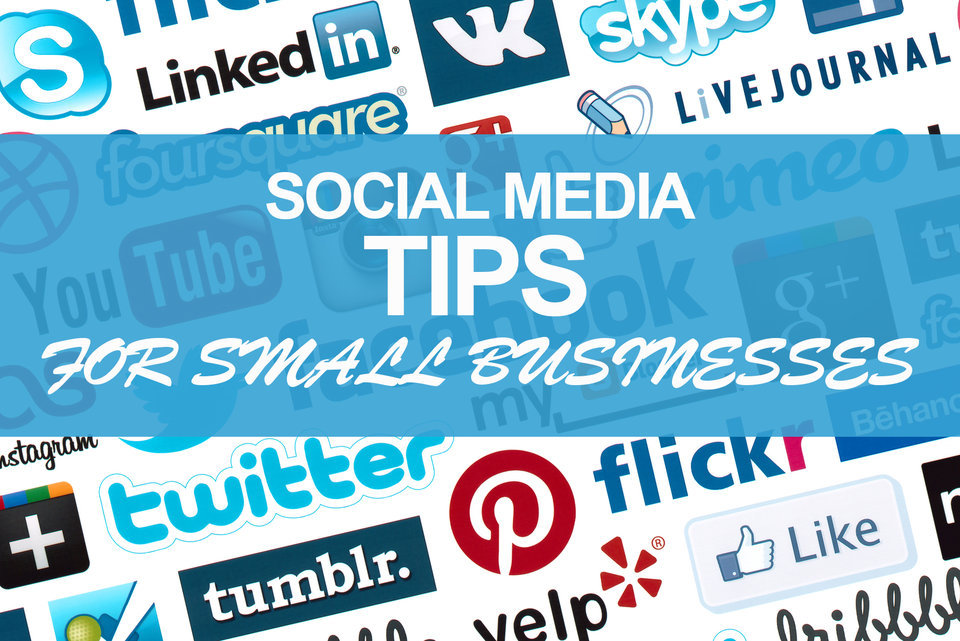What are some of the most effective small business advertising ideas? There are numerous strategies available for small businesses looking to improve their advertising. From social media marketing to guerrilla marketing and local SEO, businesses can leverage cost-effective methods to reach their target audience. These advertising strategies can enhance visibility, engage potential customers, and ultimately drive sales and growth.
In today’s competitive market, small businesses must find ways to stand out from the crowd. With the right advertising strategies, even businesses with limited resources can achieve significant growth. The following ten advertising ideas offer practical and affordable solutions to help small businesses thrive.

Content
1. Leverage Social Media Marketing to Build Your Brand
One of the most powerful tools for small businesses is social media marketing. Platforms like Instagram, Facebook, LinkedIn, and TikTok offer the opportunity to connect with a wide audience and engage with potential customers in meaningful ways. Social media marketing helps businesses showcase their brand’s personality, share valuable content, and directly communicate with customers.
Effective social media advertising for small businesses often requires consistent posting, engaging with followers, and running targeted ad campaigns. Small businesses can create paid campaigns to boost their posts and target users based on location, interests, and other demographics. This level of targeting allows for highly relevant advertising, ensuring that businesses connect with the right audience.
Tracking performance is crucial for optimizing social media strategies. Tools like Facebook Insights and Instagram Analytics help businesses assess the success of their campaigns, while A/B testing can improve ad effectiveness. Over time, small business social media marketing can enhance brand loyalty and drive conversions.
2. Utilize Influencer Marketing for Authentic Engagement
Influencer marketing for small businesses has become an increasingly popular way to promote products or services. Collaborating with influencers can help businesses reach new, engaged audiences that trust the influencer’s recommendations. By working with micro-influencers—individuals with a smaller but highly engaged following—small businesses can increase brand awareness in a cost-effective way.
An influencer marketing strategy should involve choosing influencers whose audience aligns with the business’s target market. This ensures authenticity and drives more meaningful engagement. Influencers can showcase products in real-world settings, which resonates more with audiences than traditional advertising. It’s also important to use trackable links or discount codes to measure the ROI from these campaigns.
By effectively leveraging small business influencer marketing, companies can expand their reach and generate word-of-mouth referrals in a more organic and trusted way than many traditional marketing methods.
3. Invest in Local SEO to Attract Nearby Customers
For small businesses looking to connect with customers in their local community, local SEO for small businesses is an essential strategy. By optimizing for local search, businesses can increase their visibility in search engine results when customers are looking for products or services nearby.
Key tactics for local SEO include claiming and optimizing your Google My Business profile, incorporating location-specific keywords, and ensuring your business information is consistent across all online platforms. Encouraging customer reviews on platforms like Google and Yelp can also improve local rankings and build credibility.
Local advertising for small businesses is particularly important for brick-and-mortar stores or service providers who want to attract customers within a specific geographic area. By focusing on local SEO, small businesses can ensure they’re visible when potential customers are searching for nearby products or services, leading to more foot traffic and conversions.
4. Create Valuable Content with Blogging and Video Marketing
Content marketing continues to be one of the most effective ways to drive traffic to a website and build brand authority. Small business blogging allows companies to share helpful, informative, or entertaining content that appeals to their target audience. Through blogs, businesses can address common pain points, offer solutions, and incorporate targeted keywords to improve search engine rankings.
In addition to blogging, small business video marketing is a highly engaging medium that allows businesses to showcase their products, services, and values. Videos can be shared on platforms like YouTube, Instagram, and Facebook, or embedded on your website to capture and retain visitor interest.
Content marketing for small business works best when it’s consistently aligned with the needs and interests of your target audience. Well-crafted blogs and videos that offer real value will not only attract visitors but also build trust and credibility over time. By optimizing content with SEO strategies, businesses can drive organic traffic and convert visitors into customers.
5. Use Paid Ads for Targeted Traffic and Quick Results
For small businesses seeking fast results, paid advertising provides an efficient way to drive targeted traffic to their website or landing pages. Whether through Google Ads for small businesses or Facebook Ads, businesses can run campaigns designed to reach potential customers based on specific criteria, such as demographics, interests, and behaviors.
Paid ads offer flexibility, allowing businesses to adjust their budget, targeting, and ad creative in real time. With careful keyword selection and ad copy optimization, businesses can achieve a high return on investment (ROI) without overspending.
Paid advertising for small businesses is particularly useful for promoting time-sensitive offers, sales, or new product launches. By targeting a highly relevant audience, businesses can quickly generate traffic and sales, complementing their organic marketing efforts.
6. Implement Email Marketing Campaigns to Stay Connected
Email marketing for small businesses remains one of the most reliable and cost-effective methods to nurture customer relationships. By collecting email addresses through website sign-ups or customer purchases, businesses can build an email list that they can use to send targeted messages, promotions, and updates.
Segmentation is a key component of successful email marketing campaigns. By grouping customers based on behavior, preferences, or demographics, businesses can send more relevant and personalized content. Email campaigns for small business can be automated, helping businesses save time while maintaining regular communication with their audience.
Additionally, A/B testing subject lines, visuals, and calls to action (CTAs) helps improve the effectiveness of each campaign. With personalized and targeted emails, small businesses can increase engagement, encourage repeat business, and boost sales.
7. Embrace Guerrilla Marketing for Creative & Low-Cost Campaigns
For small businesses with limited marketing budgets, guerrilla advertising for small businesses presents a creative and cost-effective solution. Guerrilla marketing relies on unconventional and surprising tactics to capture attention in a memorable way. This could include anything from flash mobs to street art, or interactive social media campaigns.
The power of guerrilla marketing lies in its ability to create buzz and generate word-of-mouth advertising. It often involves minimal costs but can lead to significant media attention and customer engagement.
Guerrilla marketing for small business should be tailored to your brand’s personality and your target audience’s interests. When executed effectively, it can produce highly shareable content and encourage social media mentions, making it an ideal choice for businesses looking to stand out in a crowded market.
8. Collaborate with Other Small Businesses for Cross-Promotions
Collaborating with complementary businesses is a great way for small businesses to expand their reach. Cross-promotions allow businesses to tap into each other’s customer base and create mutually beneficial partnerships. This strategy can involve joint promotions, shared advertising efforts, or co-branded products.
For example, a local coffee shop might partner with a bakery to offer a combined promotion for customers who purchase items from both businesses. These types of collaborations provide value to both sets of customers and increase exposure for both brands.
By utilizing small business partnership ideas and focusing on cross-promotion, businesses can expand their audience, build relationships with local brands, and increase foot traffic without additional advertising costs.
9. Host Free Webinars or Workshops to Educate Your Audience
Educating potential customers through online workshops for small businesses is an excellent way to build trust and showcase expertise. Webinars allow businesses to present in-depth information about their products or services, demonstrate industry knowledge, and engage with their audience in real time.
Offering free webinars or workshops helps position a business as an authority in its field, attracting individuals who are interested in learning more. By providing valuable insights, businesses can create lasting relationships with their audience and increase the likelihood of converting participants into customers.
Additionally, webinars allow businesses to collect email addresses for future marketing campaigns, creating an opportunity for continued engagement beyond the event itself.
10. Encourage Word-of-Mouth Marketing and Referrals
Finally, word-of-mouth advertising for small business remains one of the most powerful tools for driving new customers. Happy customers who recommend a product or service to others act as brand advocates. Implementing a referral program can incentivize customers to share your brand with their network in exchange for rewards.
Offering discounts, exclusive content, or free products for successful referrals creates a win-win situation for both the business and its customers. By encouraging satisfied customers to spread the word, businesses can generate a steady stream of new leads at little to no cost.
Online reviews also play a crucial role in building social proof and improving brand credibility. Positive reviews on platforms like Google and Yelp can increase trust in your business, influencing potential customers to make a purchase.
By integrating these ten advertising ideas, small businesses can effectively boost their visibility, engage with customers, and drive sales. Whether you focus on digital marketing for small businesses, influencer collaborations, or local SEO, these strategies are designed to help you succeed, regardless of your budget or industry.
Investing time and resources into the right advertising methods will ensure long-term growth, enhanced brand awareness, and a loyal customer base. Each of these ideas is adaptable and scalable, making them perfect for small businesses looking to make a big impact.
Conclusion
Incorporating these advertising strategies into your business plan will help you grow your brand and reach more potential customers. Whether through social media marketing, influencer partnerships, or guerrilla marketing, the opportunities to engage with your audience and build brand recognition are abundant. Tailor these ideas to your business’s unique needs and begin seeing measurable results.
FAQs
What are the best small business advertising ideas?
Some of the best small business advertising ideas include leveraging social media marketing, local SEO, influencer marketing, and guerrilla marketing to build brand awareness and drive sales.
How can small businesses use local SEO to attract customers?
By optimizing for local SEO, small businesses can increase visibility in local search results, claim Google My Business profiles, and encourage customer reviews to attract nearby customers.

Bradley attended Boston University where he received a Bachelor’s degree in Economics and Political Science as well as a Master’s degree in Business Administration from Columbia University Graduate School of Business (currently attending). He loves to write about everything business related.






